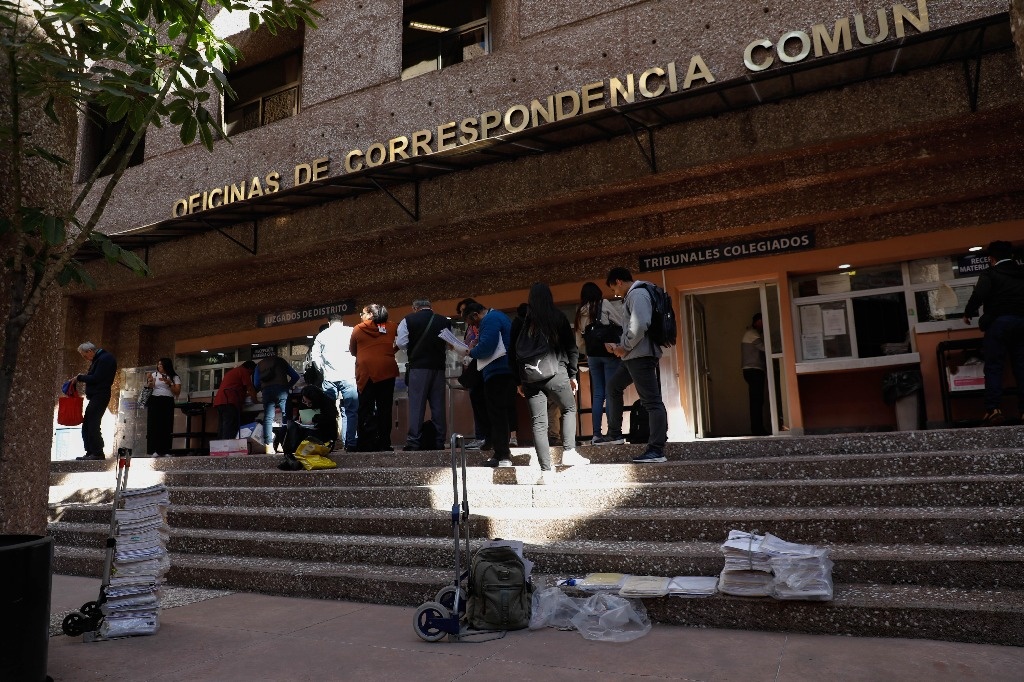Mexico City. President Claudia Sheinbuam Pardo this Friday called on citizens to denounce judicial corruption, as she said that “it would be very serious” if, before the next election of judges, magistrates and ministers, the current judges made a judicial “year of Hidalgo.”
“It would be very serious if something like this happened, that is, we cannot take it for granted that now the judges are going to, as they say, the “year of Hidalgo,” right?” declared Sheinbaum, who after using the expression added: “ By the way, it is very wrong to say that Hidalgo is the Father of the Country, but that’s how it is said. “It would be terrible.”
In her daily press conference at the National Palace, Sheinbaum was questioned about the possibility that some corrupt judges take advantage of the last months of their administration before next year’s judicial elections to release criminals, grant inappropriate protections or engage in acts of corruption. corruption, to which the president asked citizens to monitor so that it does not happen.
“Here, among all of us, we have to ensure that this does not happen, all Mexicans, and if it does happen, here we always have this space to denounce, publicly, if a situation like that occurs.”
He added that if there are judges who commit irregularities, they could be punished through the Judicial Disciplinary Court, when it is in office.
He stressed that the reform will clean up the Judiciary and all its agencies, in addition to bringing order to the interior of judicial entities and eradicating impunity.
He added that his government will not wait only for the elections of judges next year to take measures to act when there are irregular judicial decisions, such as the release of alleged criminals or the so-called “sabadazos.”
“We cannot wait for it to happen, that is, for the election that would take effect starting in June to become a reality. “We are already working,” he said, pointing out that to avoid judicial obstacles to the National Security Strategy, his government collaborates to strengthen the relationship with state prosecutors’ offices and the Attorney General’s Office of the Republic.
!function(f,b,e,v,n,t,s)
{if(f.fbq)return;n=f.fbq=function(){n.callMethod?
n.callMethod.apply(n,arguments):n.queue.push(arguments)};
if(!f._fbq)f._fbq=n;n.push=n;n.loaded=!0;n.version=’2.0′;
n.queue=[];t=b.createElement(e);t.async=!0;
t.src=v;s=b.getElementsByTagName(e)[0];
s.parentNode.insertBefore(t,s)}(window, document,’script’,
‘
fbq(‘init’, ‘133913093805922’);
fbq(‘track’, ‘PageView’);
fbq(‘track’, ‘Contact’);
fbq(‘track’, ‘Donate’);
fbq(‘track’, ‘FindLocation’);
fbq(‘track’, ‘Lead’);
fbq(‘track’, ‘Search’);
fbq(‘track’, ‘Subscribe’, {value: ‘0.00’, currency: ‘MXN’, predicted_ltv: ‘0.00’});
fbq(‘track’, ‘ViewContent’);
#Sheinbaum #asks #monitor #judicial #year #Hidalgo #prior #election
–
And how can these risks be mitigated to safeguard judicial independence?
Opening Question: How serious a matter do you think it is for the President to caution against a potential “year of Hidalgo” by corrupt judges prior to the upcoming elections for judges, magistrates, and ministers? What steps can be taken to ensure transparency and accountability in the judiciary?
1. Thematic Section: Corruption in the Mexican Judiciary
Guest 1: As a renowned jurist, you have been vocal about the need for judicial reform in Mexico. How would you assess the level of corruption in the current judicial system, and what measures should be implemented to address it?
Guest 2: You have experience working with law enforcement agencies. From your perspective, what challenges do these agencies face when dealing with corruption within the judiciary? How can we strengthen their capacity to tackle this issue?
2. Thematic Section: The Role of the Public in Combating Corruption
Guest 1: The President has called on citizens to monitor and report any irregularities they observe during the judicial elections. How effective do you think this approach will be, and what other initiatives can be undertaken to involve the public in combating judicial corruption?
Guest 2: As a civil society activist, what role do you see for citizens in promoting transparency and accountability in the judicial system? Are there any specific actions or tools that can be used to empower them to engage more effectively?
3. Thematic Section: Collaboration Between Agencies
Guest 1: The President highlighted the importance of collaboration between prosecutors’ offices and the Attorney General’s Office. How would you assess the success of such collaborations thus far, and are there any additional steps that can be taken to improve communication and information sharing between these agencies?
Guest 2: How can we ensure that law enforcement agencies and the judiciary work together effectively to combat organized crime and corruption? Are there any best practices from other countries that could be replicated in this context?
4. Thematic Section: Politics and the Judiciary
Guest 1: The President has expressed concerns about the potential for politicians to influence the judiciary. What are the risks associated with politicization of the judiciary,
